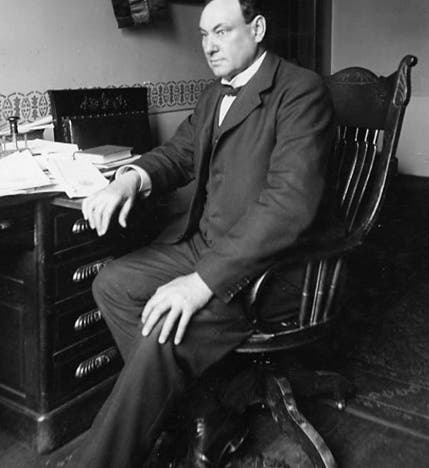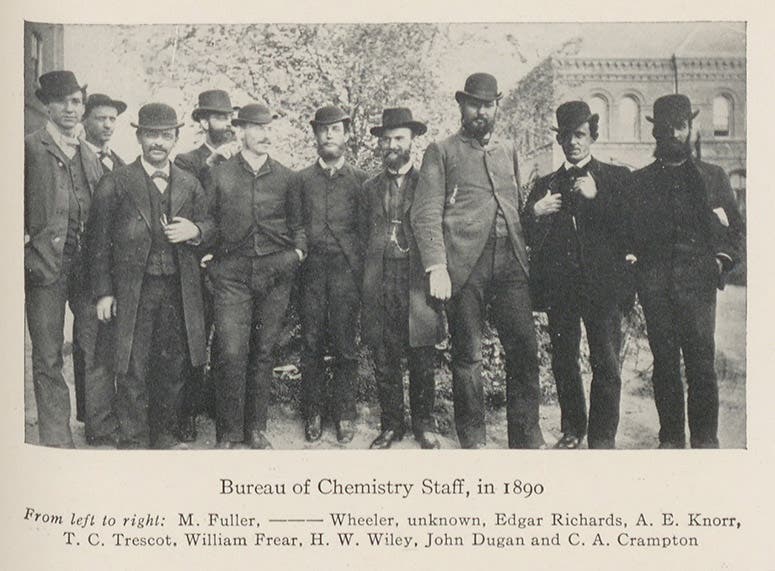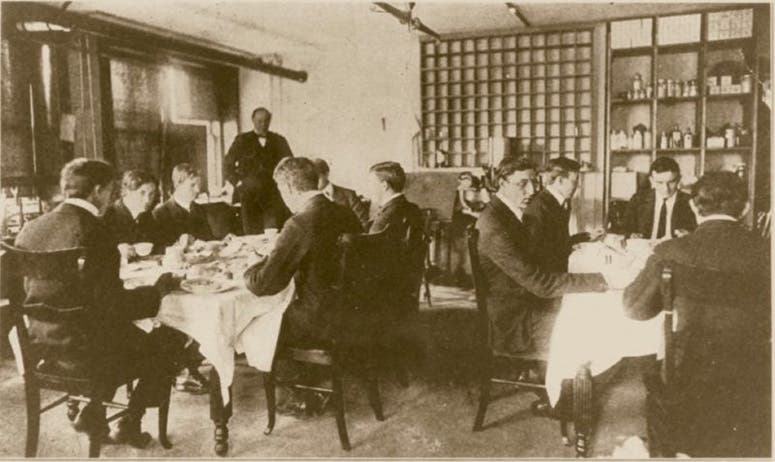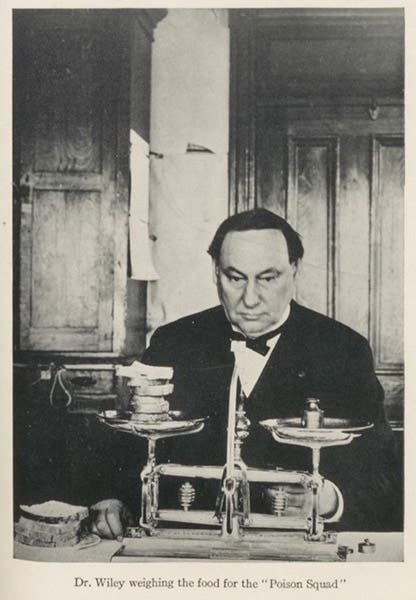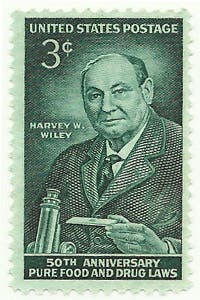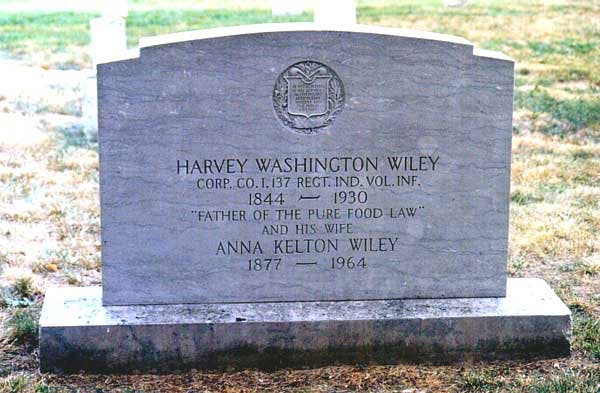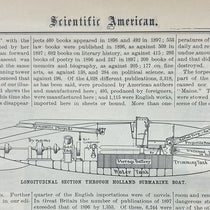Scientist of the Day - Harvey Washington Wiley
Harvey Washington Wiley, an American chemist, was born Oct. 8, 1844. Wiley taught at Purdue University, where he became interested in food, not as a consumer, but as a chemist, wanting to know exactly what was in the food we buy at the store. The state of Indiana hired him to analyze commercial honey and maple syrup sold in the state, and he found, to his surprise, that products claiming to be honey were often just corn syrup plus additives, and the same was true of maple syrup. Accordingly, he was hired by the U.S. Department of Agriculture in 1883 to head up their new Bureau of Chemistry, where he was charged with investigating America's prepared-food industry.
What Wiley found over the course of the next 20 years was appalling. There was no regulation at all on commercial food manufacturers, and, as is the capitalist way, companies took full advantage of the lack of oversight and cut corners at every possible opportunity. Commercial milk, for example, was nearly always diluted with water; the cream was removed and replaced with animal fat, and often formaldahyde was added to prevent spoilage. Meat, especially meat products like sausage, were diluted with sawdust and offal and had all sorts of additives, such as borax and salicylic acid. Ground-up insects were added to brown sugar, and chalk to flour. Commercial catsup often was made of ground-up pumpkin products with red coloring and had no tomatoes at all. The list of adulterated foods grew and grew, and Wiley found his mission in life. He began lobbying for a pure food and drug law to curb the abuses of the food industry.
Wiley found lots of support outside the department. There were many women's groups that were agitating for regulation of commercial milk, which was literally killing their children. Fannie Farmer, the country’s first best-selling cookbook author, joined the pure food movement. But there was also plenty of opposition, especially from the food industry, which formed its own organizations to lobby against regulation.
In order to determine whether food adulteration was harmful, Wiley organized what came to be called the Poison Squad. This consisted of young male volunteers from within the Department of Agriculture who agreed to participate in dietary experiments in exchange for free food. They would all dine together, three meals a day, and Wiley fed half of them pure food (which was hard to find), and the other half meals in which one item contained an adulterant, say borax. The health of the volunteers was closely monitored, and after several weeks the menus were changed and the participants switched, with another adulterated food being tested. This went on for years. It was the first controlled experimental testing ever done on commercial food, and the results were illluminating. Many of these healthy young men got sick, in a fairly short period of time, and some had to drop out of the program altogether. It was clear to Wiley, now that he had proof, that many food additives were harmful. And he was further convinced that, even it not harmful, substituting sugar water for honey was unethical and ought to be illegal.
Wiley lobbied for years, especially after 1900, for federal food regulation, and he ran into setback after setback, as the food industry lobbies were very powerful. Fortunately, he was a persistent and convincing spokesman, and eventually he succeeded. The country’s first Pure Food and Drug Act was passed and signed into law by Theodore Roosevelt in 1906. The law was commonly referred to in the press as Dr. Wiley's Law. It lacked teeth and would have to be strengthened over the coming decades, but it brought the problem of food adulteration to public attention, and that attention, once raised, never went away. Wiley has been called the father of the pure food movement, and the father of the FDA, and he deserves all these accolades, because without his perseverance, the Pure Food and Drug Act would not have been instituted in 1906, and perhaps not for decades thereafter.
Wiley wrote an autobiography that was published in 1930, which we have used for some of our images here. Unfortunately, he never lived to see it in print, as he died the year it was published. When the fifty-year anniversary of the Pure Food and Drug Act was commemorated by the U.S. Postal Service, Wiley’s portrait was included on the stamp. And his gravestone in Arlington National Cemetery is inscribed: “Father of the Pure Food Law.”
A recent book about Wiley, The Poison Squad, by Deborah Blum (2018), is excellent reading, and has lots of photographs of the other actors in the drama of the fight for food safety regulation. It was the basis for a program in the PBS American Experience series in 2020, which you can access here.
Dr. William B. Ashworth, Jr., Consultant for the History of Science, Linda Hall Library and Associate Professor emeritus, Department of History, University of Missouri-Kansas City. Comments or corrections are welcome; please direct to ashworthw@umkc.edu.

